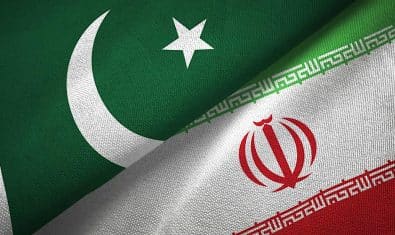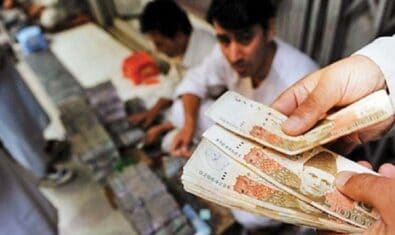Pakistan’s fiscal deficit will increase to 6 percent of its GDP in fiscal year 2018-19, up from 5.8 percent in 2017-18, says Fitch Solutions.
Fitch Solutions, in its latest report, states that the Pakistani government will likely have to cut back on its expenditure over the coming months as it looks to secure funding from the IMF under the bailout program amid weak revenue growth.
The widening current account deficit, weakening currency, and dwindling foreign reserves suggest that the current fiscal trend (where expenditure continues to outpace revenue growth) is unsustainable.
However, given that there is likely a limited extent as to how much the government can reduce expenditure and weak revenue growth, we are revising our forecast for the budget deficit as a share of GDP to come in at 6.0% in fiscal year 2018-19 (July – June), from 5.8% previously.
Pakistan saw its budget deficit as a share of GDP balloon from 4.6% in fiscal year 2015-16 to 6.6% in fiscal year 2017-18 as expenditure grew by an average of 13.7% per annum, outpacing revenue growth at 8.5%.
This trend continued into Q1 fiscal year 2018-19 (July – September) when expenditure surged by 12.1% yoy, while revenue grew by 7.5% yoy in the same period. This saw the budget shortfall widened by 22.9% yoy to Rs. 541.7 billion in the three-month period, up from Rs 440.8 billion a year ago.
The widening deficit trend is unsustainable and continues to expect the government to slow its expenditure growth over the coming quarters. The growing fiscal deficit has contributed to the balance of payments crisis that Pakistan is currently undergoing and we highlight that the country is running out of foreign currency to fund its imports, given that foreign reserves import cover is now at less than two months.
The new PTI government has moved to secure financial assistance totaling $6 billion from Saudi Arabia and recognizes the immediate need to secure a similar sum in IMF emergency funding to enable imports to and ensure the confidence of creditors to be maintained.
However, the long-trailed discussions with the International Monetary Fund, which began in November 2018 with a visit from the fund to discuss technical aspects of the bailout program, ended inconclusively in December 2018. The main issue is that the IMF is insisting on harsh austerity measures and reforms to state-owned enterprises which the government is reluctant to accept.
“We maintain our view that an eventual IMF agreement is likely, but we believe that there will be limited scope for the government to cut expenditure substantially over the coming months”, maintained in the Fitch report.
In terms of current expenditure, a large debt servicing cost and huge military budget (which the government has little control over) suggest that there is little room for maneuvering.
Indeed, ‘Defence Affairs and Service’ accounted for 14.8% of total current expenditure, while domestic debt servicing cost constituted 31.2%. The government has already slashed development expenditure by more than 40% in the July-September period and is unlikely to gain further savings from this segment.
Meanwhile, the need for international assistance comes against a backdrop of slowing economic growth, both in Pakistan and the global economy in general. Growth came in at 5.4% in the fiscal year 2017-18, and we expect the economy to slow to 4.4% in the fiscal year 2018-19 and 4.1% in the fiscal year 2019-2020; this is likely to weigh directly on the government’s revenue collection.
Furthermore, Pakistan suffers from a weak tax-to-GDP ratio, a problem that the government has acknowledged, and relies heavily (60%) on indirect taxes. The small tax base suggests that the government will find it difficult to raise revenue significantly in the near-term even if it has the will to do so.
Furthermore, the poor performance of state-owned enterprises, which posted a combined net annual loss of Rs 44.8 billion the fiscal year 2015-16, will likely continue to be a further drag on public finances over the coming quarters.
The government has stated a desire to depoliticize the leadership of the behemoths in this area. However, rather than undertaking a cleaner break and moving these organizations into private ownership, the government is planning to move them under the umbrella of a sovereign wealth fund along the lines of Malaysia’s Khazanah Nasional, which does not remove them from contingent liabilities.


























